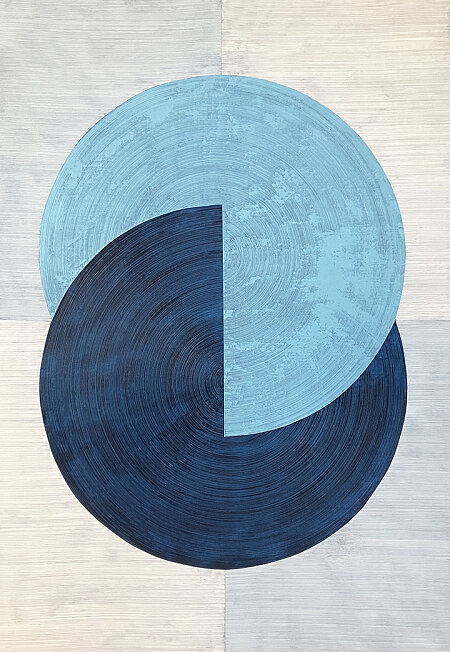
Boxcutter
His work has been done for some time. His only duty now is to wait his turn, quietly and with a bit of grace. And so for the past nine years, he’s had to learn how to live despite having no obligations to do so. Living for the sake of living, and nothing else, has been difficult and frankly boring, but Georgy has learned to take comfort in the familiar, the routine, and the reliable. He enjoys his daily walks to the Windsor Market, likes how the place has not changed much in thirty-five years. He likes Nina, the woman who owns the market, and he likes the stray cats who’ve taken up residence behind his bungalow. He likes setting food out for them at the same time every morning and once again before bedtime. He likes watching the same television shows every night on the same TV set he’s had since 2004. He would like to do all of these things again tomorrow.
*
A light has come on in one of the second-floor apartments above. Georgy can make out a row of shampoo bottles and other toiletries on the other side of the illuminated window. He’s staring into a bathroom, someone is in there, but probably not for long. He has a minute or two at most to attract their attention.
With great effort he manages to hook his foot through the handle of the grocery bag lying at his feet. He draws the bag up between his legs until it’s within reach and then grabs a can of cat food. Every single movement invites new aches and pains. He takes a second to summon whatever energy he has left, and then winds back and chucks the can of cat food towards the second-floor window. It falls short by a few feet, plunks to the ground, rolls off into the shadows. A scorching pain flares up in his throwing arm, and he wonders if he might’ve landed on it and broken it after the young man punched him out.
He’s forced to switch to his non-dominant arm, which seems to have been spared any damage in the assault. Still, the arm is weak and uncoordinated even at its best. He grabs a new can out of the bag and hurls it towards the glowing window above. His throw is even more unwieldy this time, missing the window—the entire building—by several feet before dropping into the weeds below.
The brief rush of adrenaline that was spurring him on just moments ago has been spent, and now he’s simply exhausted. The pain in his body keeps spreading, intensifying, finding new ways in. He wishes he could scream or pace around or do anything to expel what’s pent up inside him, but he can’t fathom moving a single inch. He can’t fathom doing anything except closing his eyes and dying right here in the alleyway between Franklin Avenue and Windsor Boulevard, not a quarter-mile from his own home. It no longer feels up to him.
Just then, right on cue, the apartment light flickers off, and he’s missed his chance at rescue.
And yet a nagging feeling compels him: one more try. Another round of pain is a miserable, daunting prospect, but if he is indeed about to die here in the alleyway between Franklin and Windsor, then in a few minutes it won’t have mattered anyway. It’s a stubborn bit of logic, one that hardly makes sense, but it spurs him. He lets it spur him. He grabs another can of cat food from the bag, focuses his sights on the darkened window above, and throws hard. Immediately his body falls limp, a lightning bolt of pain shooting down his spine. It’s different this time, the pain. There’s something conclusive in it, something untenable: his body simply cannot handle any more. He feels himself slipping into a blackout, his eyesight and vision quickly failing him, but seconds before oblivion he swears he hears the can of cat food make contact with the window. A second later, the window slides open and an angry face appears, stares down at him, and asks him what the hell. In as loud a whisper as he can muster, Georgy tells the angry face, “Ambulance.”
*
For twelve hours, the John Doe in room 117 hardly stirs. Georgy is a non-entity floating in a cold, dark void, weightless and unthinking—until finally the promise of light and sound returns to him and beckons him to open his eyes. He finds himself flat on his back once again, staring straight up at a white tile ceiling. Somebody is speaking Spanish nearby. His neck is stiff and he doesn’t dare try to move it. In the low boundary of his peripheral vision he can see an IV sticking in his arm and he’s briefly startled—he’s never been good with needles—but too exhausted to fly into a full-on panic. He can make out a pale blue curtain hanging to his left; behind it, his unseen neighbor is watching Spanish-language news on the overbed TV. He feels a remote control resting at his fingertips and grips for it, presses the big red “Call” button. A minute later, a kind female face is hovering over him, asking him what his name is.
